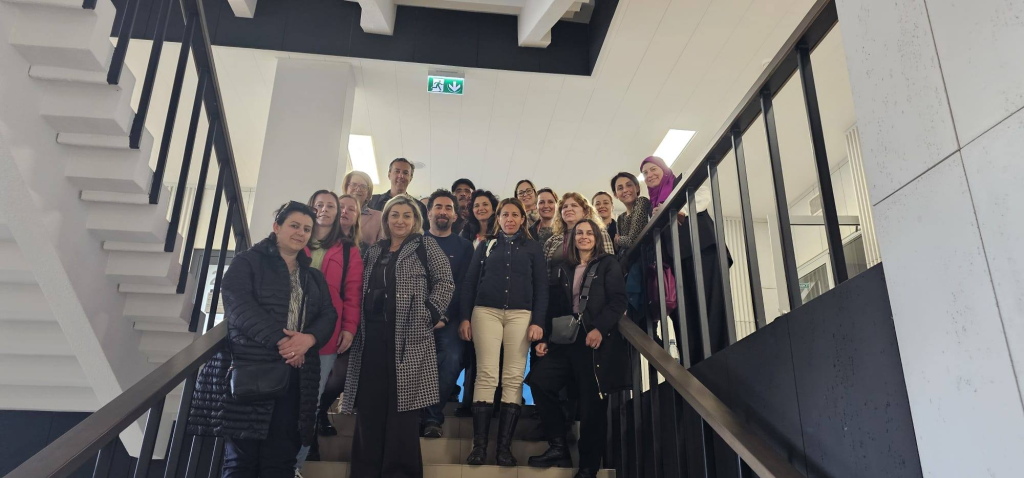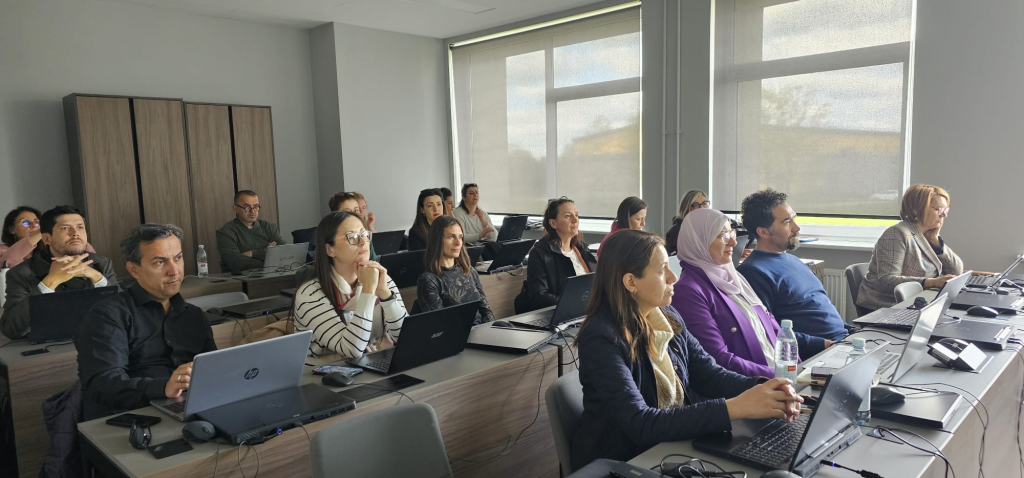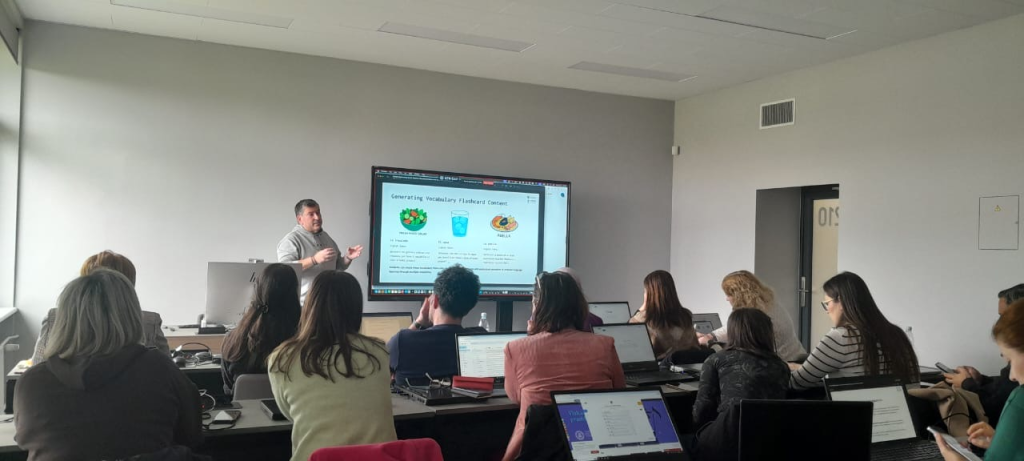From May 5 to 9, 2025, Vytautas Magnus University (VMU) in Kaunas, Lithuania hosted the third international internship of the EduGame – Gamification of Teacher Education project. This Erasmus+ initiative brought together educational experts from Lithuania, Spain, Italy, Albania, Bosnia and Herzegovina, and Tunisia to collaboratively explore the integration of gamification and game-based learning (GBL) in Initial Teacher Education (ITE).
Day 1 – May 5: Deep Dive into Game-Based Learning and Educational Escape Rooms
The internship began at the Vytautas Magnus University Education Academy with an introduction to the training objectives by Judita Kasperiūnienė (VMU, Lithuania). Participants engaged in two hands-on workshops focused on Educational Escape Rooms, led by Asma Hadyaoui, Maha Harzallah, and Nadra Ben Romdhane from Tunisia. These sessions explored how immersive escape room scenarios can enhance motivation, collaboration, and critical thinking in higher education settings. The day also included a presentation by Filomena Faiella (UNISA, Italy) showcasing examples of gamification in higher education learning. The evening featured an official opening event complemented by a special International Food Fair, providing a welcoming atmosphere for networking and cultural exchange.
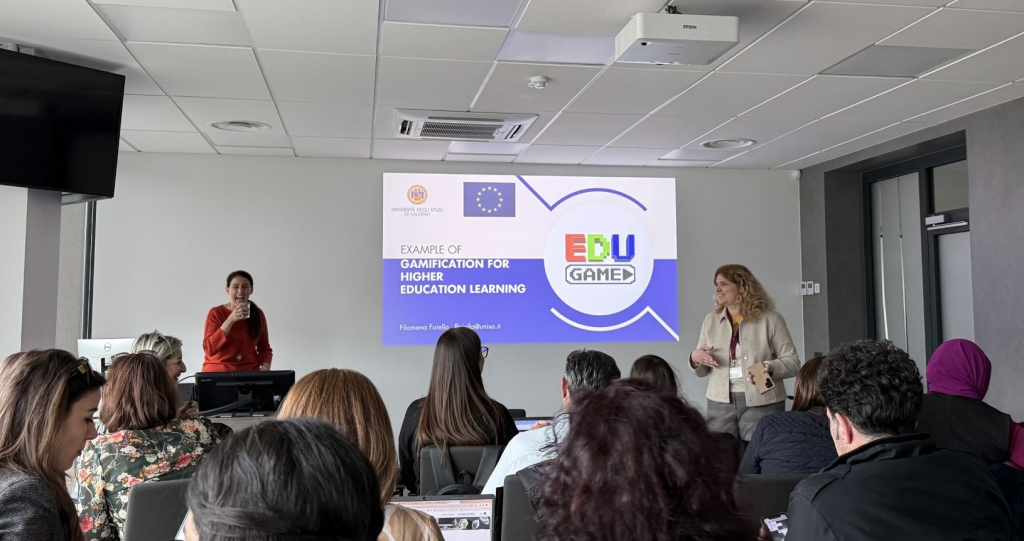
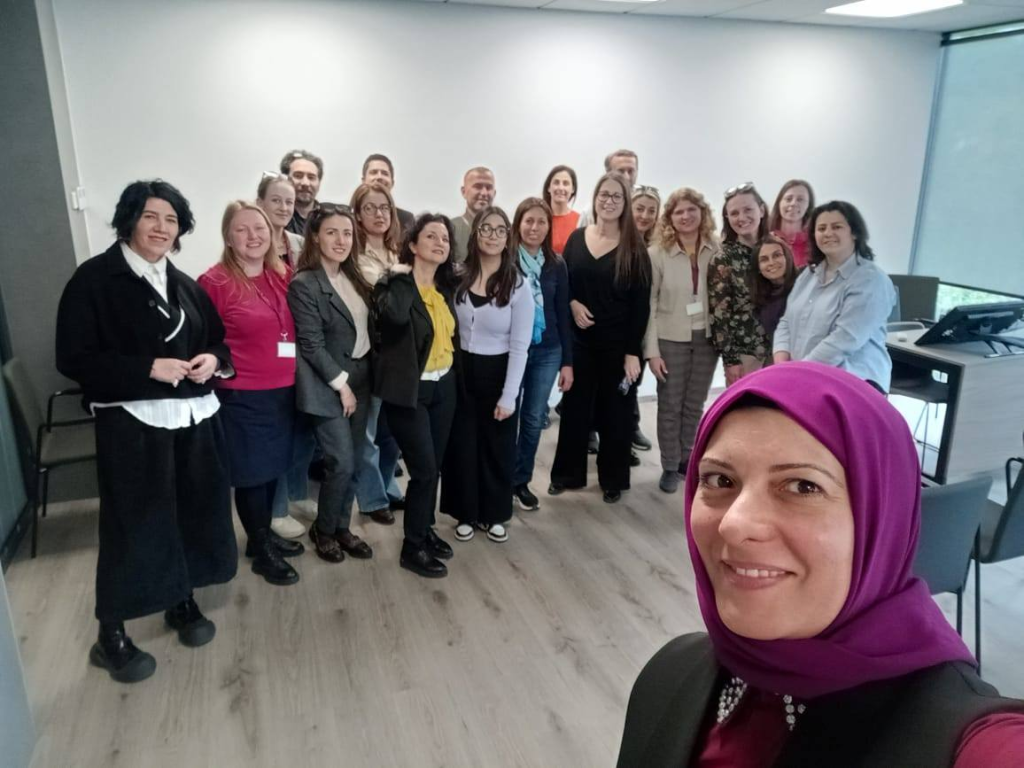
Day 2 – May 6: Deepening Game-Based Learning and Assessment
The second day continued at the VMU Education Academy, starting with a presentation by Natalija Mažeikienė (VMU) on Game-Based Learning in History: Practical Assignments for Future Educators, highlighting engaging, discipline-specific gamified tasks. A workshop followed with Andi Pinari, Juliana Gjinko, and Desara Agaj (UT, Albania), facilitating further practical applications. In the afternoon, Ameny Rjiba (Tunisia) presented on Stealth Assessment in Serious Games, showcasing innovative methods for unobtrusive evaluation during gameplay. The day concluded with Teaching Through Play: Applying Gamification in Literary Analysis by Aida Džiho-Šator (UNMO), demonstrating gamification’s potential to deepen engagement in literature studies.
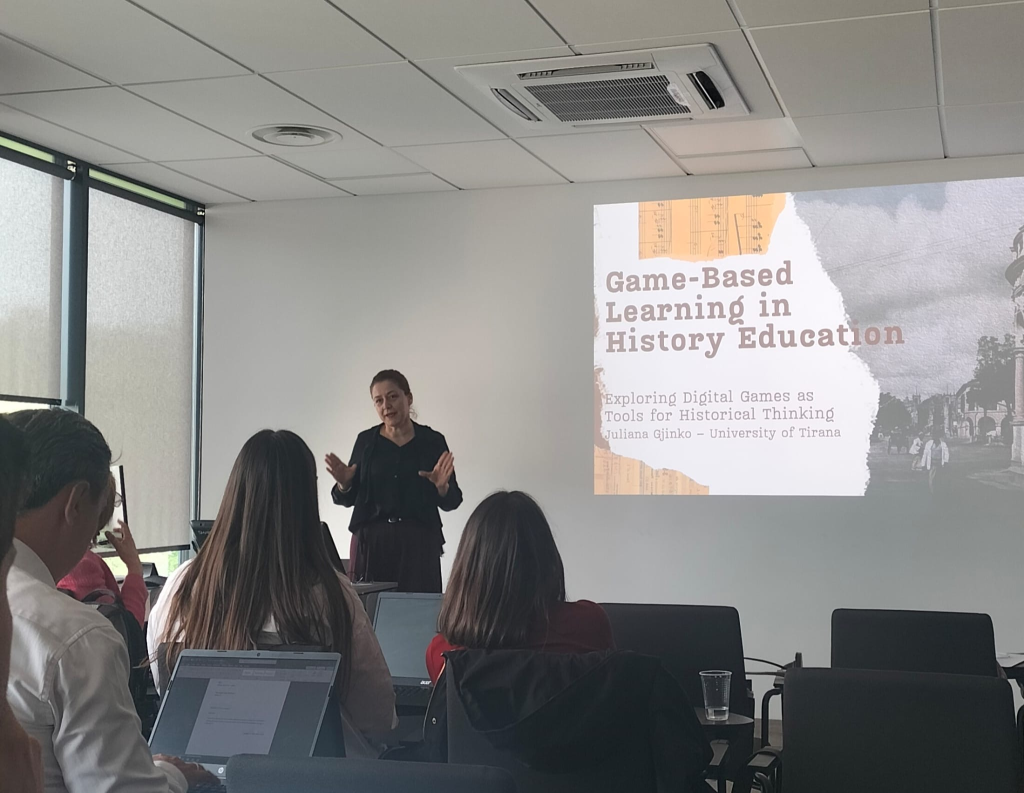
Day 3 – May 7: Creating Practical Teaching Innovations with AI and Gamification
Day three moved to the Faculty of Informatics in Akademija (Kaunas), with Jordi Linares (UPV, Spain) leading a detailed session on Prompt Engineering for AI-Powered Educational Games and Interactive Learning. This included a thorough introduction to Large Language Models and multimodal AI, emphasizing practical techniques such as role prompting and few-shot prompting. Participants then collaborated in domain-based groups (language, history, STEM) to build AI-enhanced educational prototypes through hands-on prompt crafting and content generation. The afternoon included a workshop on modern pedagogical approaches for game-based learning led by Natalija Mažeikienė (VMU), Vildana Pacenkovic (UNBI), and colleagues from partner universities. The day ended with planning sessions for the upcoming Summer School.
Day 4 – May 8: Modeling Gamified Learning Materials
Returning to the Faculty of Informatics, the day began with a session by Iveta Intaitė (VMU) on Gamified Environments and Virtual Characters, exploring how virtual elements can enhance learning engagement. A practical continuation workshop allowed participants to apply these concepts directly. The afternoon featured a workshop on IT Technologies in STEAM Activities, presented by Judita Žukauskienė (VMU STEAM Centre) and Edgaras Ščiglinskas (Multimedia laboratory), focusing on integrating technology into science, technology, engineering, arts, and mathematics education. The day concluded with a Q&A session.
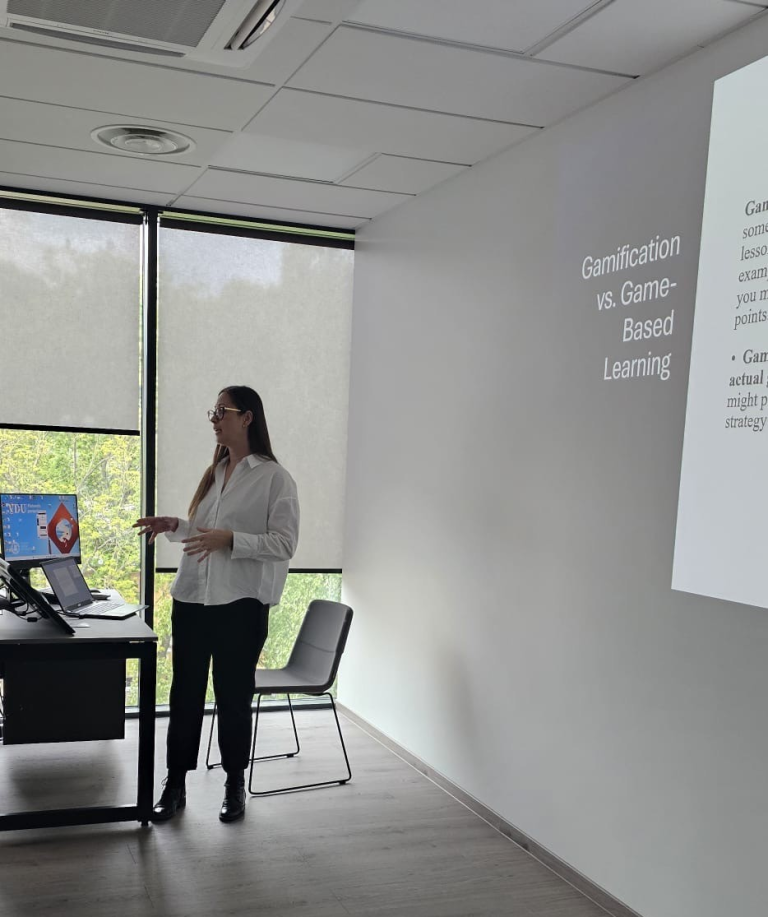
Day 5 – May 9: Reflecting and Looking Ahead
The final day began with a workshop by Jodi Joubert (University of Pretoria, South Africa) on Computers as Mindtools, discussing how digital tools can support critical thinking and creativity. This was followed by an interactive session titled Case Tunisia featuring Hassen Kharroubi, Inen Akrouti, and Afifa Mahjoub (UJ, Tunisia), sharing their experiences with gamification and digital learning. Then, a wrap-up panel discussed future directions for the EduGame project, followed by the certification ceremony recognizing participant contributions. The internship concluded with outdoor learning activities, emphasizing experiential education and networking.
This internship successfully advanced international collaboration in gamification and innovative educational technologies, providing participants with practical skills and resources to enhance teacher education. We extend our sincere gratitude to all participants and speakers for their valuable contributions and engagement throughout the week.
We would like to express our sincere gratitude to all participants for their invaluable contributions, professional expertise, and commitment throughout the internship. Their active engagement and collaborative efforts were fundamental to the success of this event and the advancement of innovative gamification methodologies in teacher education.
Funded by the European Commission under the Erasmus+ program (Project No. 101128757).
